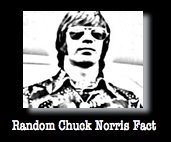This might get Scooty all excited, but my guess is that he has little clue.
Every so often I get to help a kid with his homework. This last Monday was one of those days. I got to help a 4th grader separate words into diphthongs and digraphs. Fortunately, he had the answers from class. Unfortunately, he had no idea what either meant. I had only a little clue about diphthongs, and no clue about digraphs. Plus my little clue about a diphthong stopped with only having heard the word before.
Well, something you should know about me is that I like to know stuff. My sister loves to refer to me as a Sabe La Todo (it is ironic that I do not know how if Spanish phrase is spelled correctly). Not knowing what something means usually requires me to find out the meaning - but only if I can find out with little effort. As a kid this meant asking my parents what something meant. They would either tell me (which would also include making up an answer that I would believe), or they would tell me to go look it up and return with the answer for them as well. Things have not changed much since being a little kid. The only difference is that Wikipedia has now replaced my folks. Wikipedia responds the same way though. It either knows the answer (which would also include made up answers that I believe), or it tells me to go find the answer somewhere else and bring it back to make an entry on the site.
Luckily, little effort was spent because little miss Wiki had the answer for me. I even found out some really fun stuff about voiceless postalveolar affricates and voiceless labiodental fricatives (which all this time I really thought was men quietly using nature's own dental floss). What I want to know is if you know what a diphthong or digraph is without looking it up first? Does your elementary education stand up to the test?
Wednesday, February 7, 2007
I hope that booger pizzas invoke much fear.
Posted by
Anonymous
at
2:31 PM
![]()
![]()
Subscribe to:
Post Comments (Atom)



7 comments:
Boy, I'll bet that kid thought you were an idiot! You don't know what a dipthong is? Moron. Kidding.
Seeing as Scootypuff's degree was in English, and not phonetics, I'll be pretty darn impressed if he knew the meanings of those two words. Then again, Scooty's body of knowledge never fails to amaze me.
I'm not sure I ever learned that stuff. Either the Texas school system only cared about teaching us the Southern Drawl (sorry, don't know the scientific name for that), North Carolina has superior schools, or I just plain forgot it ever was in my brain at one point and time.
Considering my background, I was a bit worried that I didn't know what a voiceless postalveolar affricate was, but was relieved to know it had nothing to do with the lungs. As far as voiceless labiodental fricatives, I was thinking of something really dirty involving expletives, teeth, and cunnilingus. I should get my head out of the gutter.
Yes, I knew what both of those were, I even knew what a labiodental fricative was, although the voiceless part I don't know, and postalveolar affricates I can't only guess at.
Don't forget, foreign languages are a curiosity of mine, so knowing that Korean contains no labiodental fricatives (letters sounded by friction between the teeth and lips, such as 'v' or 'f') or that German diphthongs (single phoneme vowels created by combining two vowels) and diagrams (sounds without single letter representation that are instead created by combining two letters that don't phonetically "add up" to the sound they create) follow different pronunciation rules than they do in English is important to me.
Bitches.
Now, who can tell me the difference between an a priori and an a posteriori language?
By the way, diphthong is on my soon-to-be-published list of words that sound dirty, but aren't.
Now you've done it, Willie.
Okay so you know what they are, and I knew that you would be the only one of the group with a chance of knowing. I have this question for you though Scooty ... can you give me some examples, and which words in the title fall into either category?
Well for diagrams, anything with ch or sh would work, such as church or shush. Diphthongs are a bit tougher in English, as accents can make or break them. Mouse is a pretty safe one, however.
And in your example, the double o sound in booger is the diphthong, while the hard t sound in pizza is the diagram.
Don't forget hope, much, and fear.
Hope and Fear are supposed to be diphthongs, but honestly I can only barely hear it in the word fear. I don't know about hope.
As for a priori and a posteriori ... I don't know what those mean either.
Ah! I found one of each and stopped looking - my bad. As for hope, I must be missing something because that is just a long o I thought, and not a diphthong.
An a priori language is a made up language with no basis (at least in vocabulary) of existing languages, like when the Star Trek nerds got together and made the Klingon language. By contrast, an a posteriori language is a made up language which does have a basis in existing languages, like Esperanto, a language comprised of the most common terms of most languages (for example, the word bad in Esperanto is malo, which I'm sure you recognize from the Latin root mal.) Esperanto was made by this Polish cat in the mid 19th century to provide a language that was easy to learn and had no cultural ties. It was a first attempt at a "can't we just all get along?" type language. The word itself means 'hope.'
Post a Comment